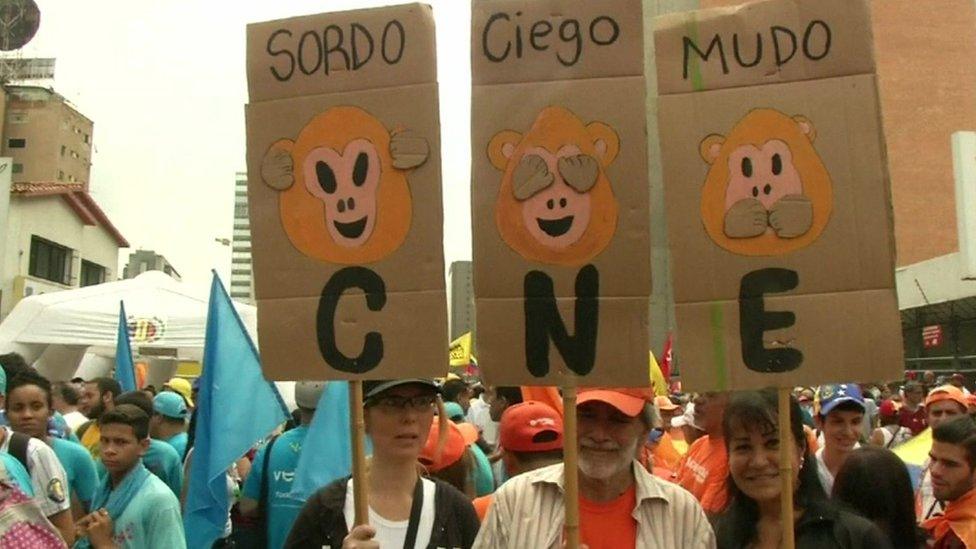Venezuela recall: Maduro goes to court to block referendum
- Published
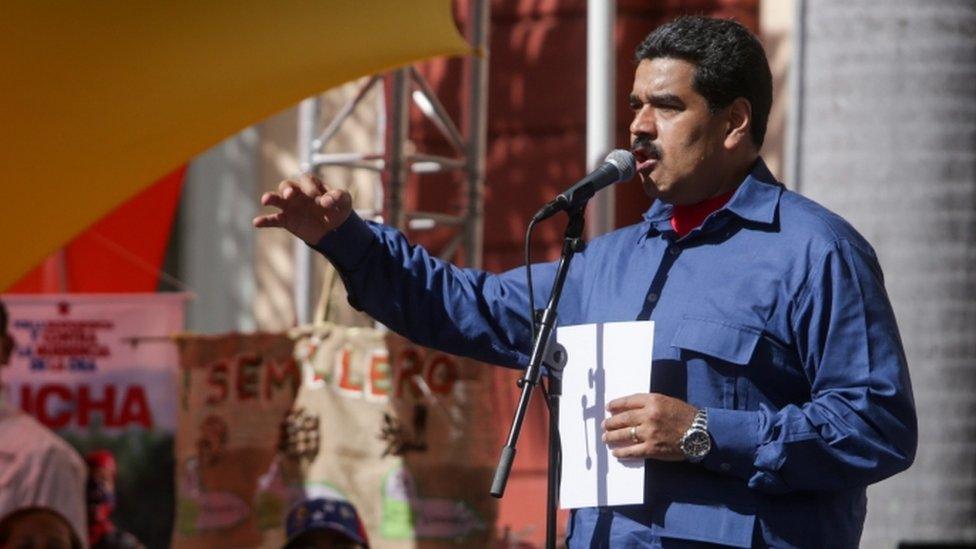
Nicolas Maduro's six-year term ends in January 2019
Venezuela's government has asked the Supreme Court to reject the opposition's proposal to hold a referendum to remove President Nicolas Maduro from office.
It accused the leaders of the recall referendum movement of fraud.
On Friday, the National Electoral Council (CNE) declared more than 600,000 signatures on a petition for the referendum invalid.
The opposition says the electoral authorities are biased against them.
Venezuela is on the brink of economic collapse, facing high inflation and a shortage of food and basic goods.
The opposition blames the Socialist policies of Mr Maduro and his predecessor, Hugo Chavez, for the country's economic decline.
'Stop lying'
The government says the country's economic elite, backed up by conservative forces in the United States and other countries, has been plotting to topple the government.
One of Mr Maduro's closest allies, Jorge Rodriguez, has been appointed to check whether there are any irregularities in the recall referendum process.
"We have found a huge fraud against the Constitution," he said, after beginning legal action at the Supreme Court.
"Stop lying to the international community and stop lying to the Venezuelan people," he said.
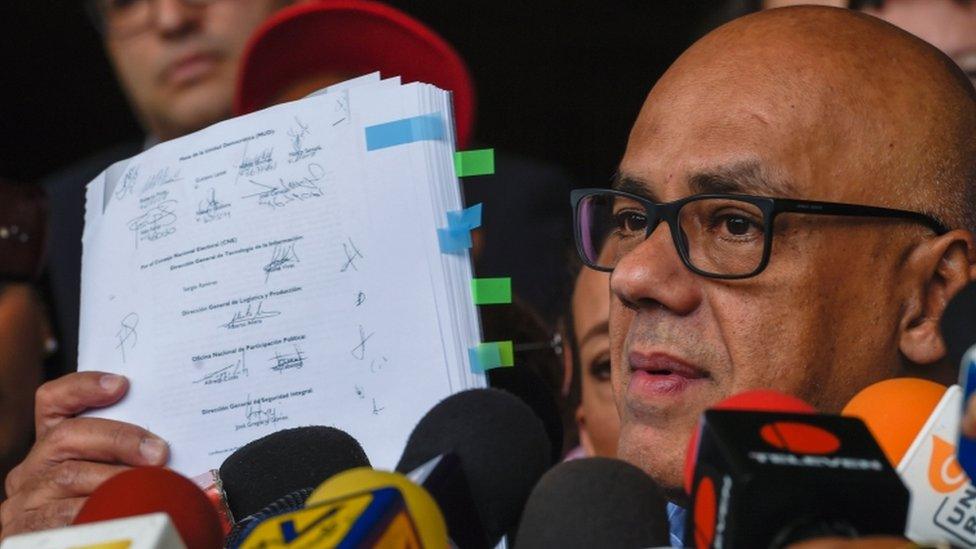
Jorge Rodriguez said there was widespread fraud in the collection of signatures
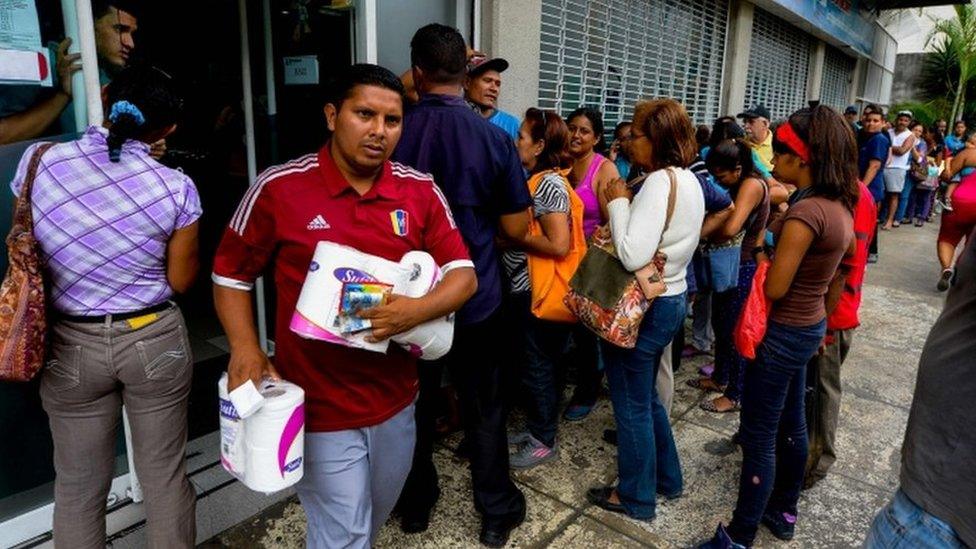
Long queues outside supermarkets and shops have become routine in Venezuela
He stressed once again that it would not be possible to hold the referendum this year as the opposition wishes.
On Saturday, Mr Maduro said the recall referendum would be held in 2017 if the opposition met the legal requirements.
"If they don't meet the requirements, there will be no recall referendum, full stop," said Mr Maduro.
New election
Timing is essential for both sides. If the referendum is held by 10 January 2017 and President Maduro loses, a new election will be called.
If it is held after that date and the vote goes against him, his vice-president takes over and remains in power until the end of the presidential term, in January 2019.
The opposition handed over the petition on 2 May.
It said it had gathered the signatures of 1.85 million voters backing a recall referendum, many more than the 197,000 needed at this initial stage. The CNE said on Friday there were 1.97 million signatures on the list.
The voters whose signatures have not been struck off by the CNE - more than 1.3 million people - will need to turn up at regional electoral offices to confirm their identities later this month.
They will have five days from 20 June to have their signatures checked, CNE President Tibisay Lucena announced on Friday.
Opposition leader Henrique Capriles urged voters to get ready to go to government offices to have their identities checked so the process can reach its next stage.

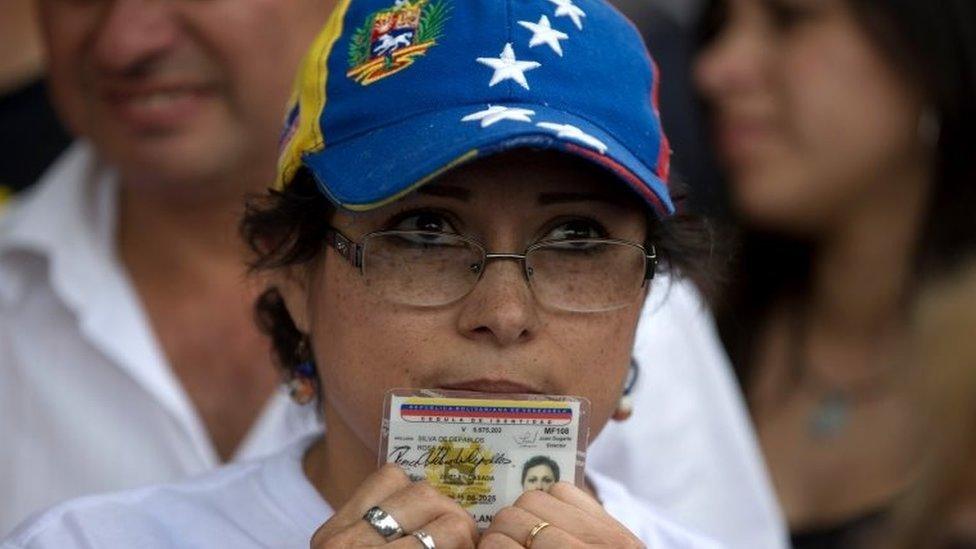
For the referendum to be successful, almost 7.6 million people will have to vote to oust Mr Maduro
1% of voters on the electoral roll have to sign a petition within 30 days to kick-start the process
20% of voters (almost four million) have to sign a second petition in order to trigger the referendum
For the referendum to be successful, an equal or greater number of voters than those who elected Mr Maduro would have to cast their vote in favour of the recall - he won the 2013 election with 7,587,579 votes

- Published12 June 2016
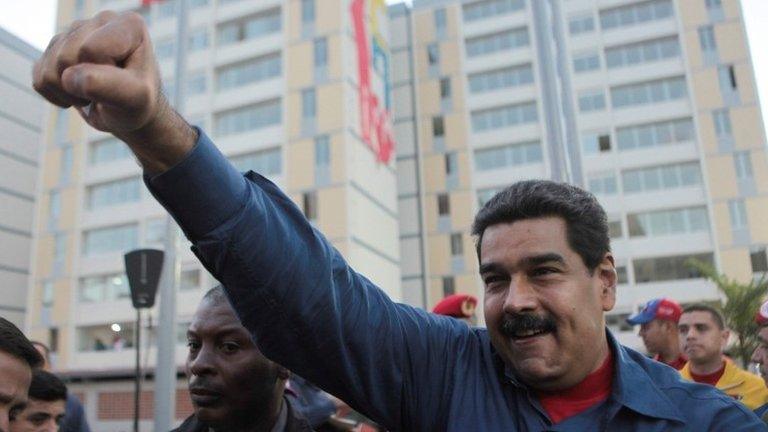
- Published2 June 2016
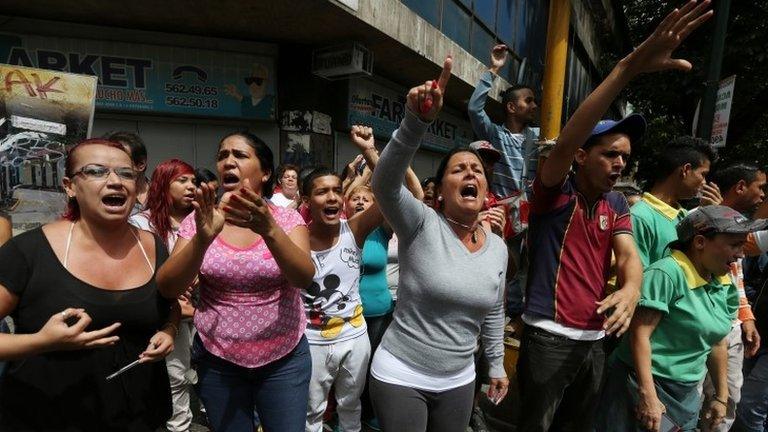
- Published1 June 2016
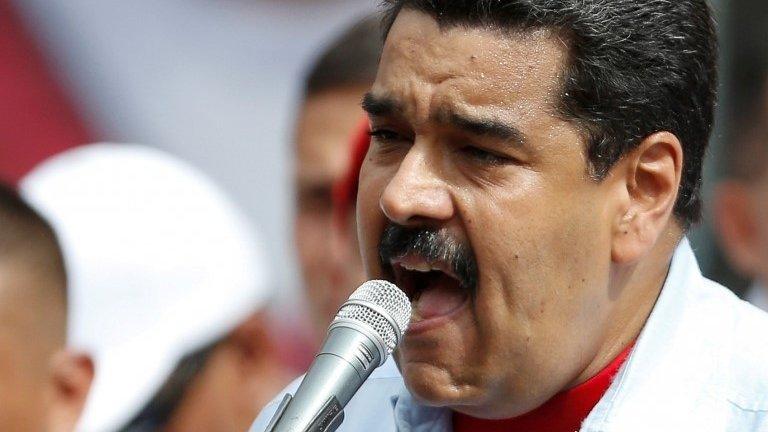
- Published15 May 2016
